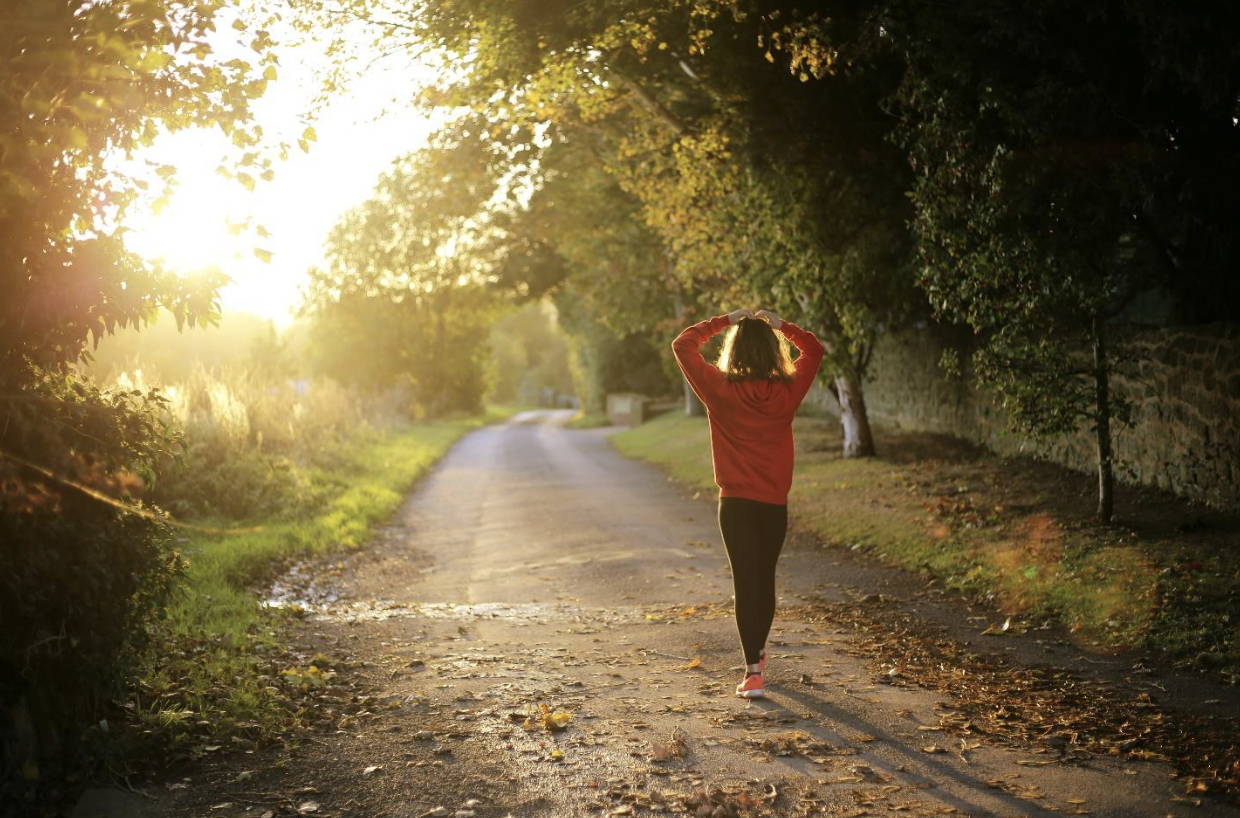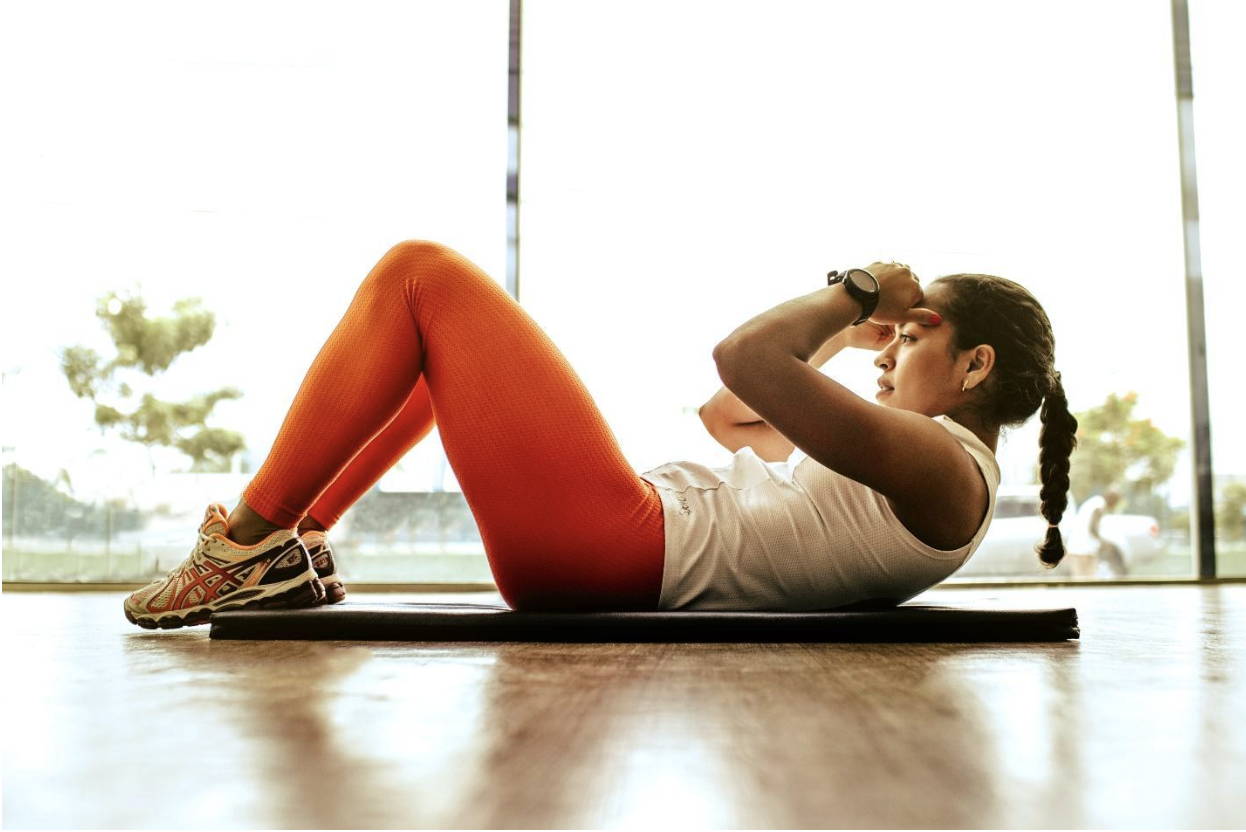Stress happens, especially in today’s world. These habits can help you take your life back and find some relief from whatever’s getting you down.

October 2022. This article is independently written by Shelby Golding. All opinions given are hers. Shelby has been certified as a personal trainer and nutritional specialist since 2007. In 2008, she found her passion for writing about these topics and hasn't looked back.

It can be tough to take stress seriously when it's just a fact of life for most of us. But without stress-relieving habits to take care of your mind and body, it can take a severe toll, creating issues like obesity, high blood pressure, and heart disease.
If you deal with stress, it’s time to implement habits that will help you combat stress, relax, and protect your mental and physical health. Keep reading to find out how.
Understanding Stress
When you’re stressed, it impacts everything in your life. It can change how you behave, feel your emotions, and sleep.
Here are some of the mental side effects of ongoing stress:
Here are some of the mental side effects of ongoing stress:
- Irritability, anger, and impatience
- Anxiety, worry, tension, nervousness, and fear
- Depression and a lack of interest in life
- A sense of dread or impending doom
- Racing thoughts and a diminishing sense of humor
- Worsening of existing mental health problems
Here are some of the behavioral effects of stress:
- Nail biting, teeth grinding, and jaw clenching
- Indecision, trouble concentrating, and difficulty with memory
- Constant worry, crying, or feeling tearful
- Snapping at people
- Spending too much
- Avoiding exercise or overtraining
- Eating too much or not enough
And here are some of the physical side effects of being stressed:
- Panic attacks, difficulty breathing, and sweating
- Sleep problems, fatigue, sore eyes, and blurred vision
- Sudden weight gain or loss
- Headaches and muscle pain
- Chest pain, high blood pressure, and fainting
- Indigestion, heartburn, constipation, diarrhea
- Rashes and itchy skin
- Feeling dizzy, nauseous, or sick
- Loss of interest in sex, erectile dysfunction, and menstrual changes
Stress Relieving Habits That Work
Implementing new habits while you're stressed doesn't always sound good. But if not now, when? It can help to talk with a therapist or counselor about your stress as you implement these habits in your life. Your mental health professional can help you find the ones that work for you and keep you focused on pursuing stress relief.
Cognitive Behavioral Therapy
Speaking of therapy, cognitive behavioral therapy (CBT) is proven effective for reducing stress and improving a wide range of mental health disorders and conditions. It’s a method that helps you change how you respond to stressful situations, replacing engrained negative habits with new, healthier patterns.
Therapy with a trained mental health professional specializing in CBT is the best way to learn this effective skill. You can even find therapy from home with online services like BetterHelp. Or you can look for CBT books at the library or bookstore (or on Amazon) and start to learn the methods from home. Then, when you have time to work with a therapist, you’ll have an excellent foundation to build from.
Therapy with a trained mental health professional specializing in CBT is the best way to learn this effective skill. You can even find therapy from home with online services like BetterHelp. Or you can look for CBT books at the library or bookstore (or on Amazon) and start to learn the methods from home. Then, when you have time to work with a therapist, you’ll have an excellent foundation to build from.
Exercise and Do Yoga

Exercise and physical activity help relieve stress by stimulating endorphin production and reducing stress hormones. Research has also proven that yoga can help reduce stress, depression, and anxiety, likely for similar reasons.
Adding exercise and yoga into your daily routine is an excellent way to combat stress levels, increase feel-good endorphins, and maintain health. Try alternating between 30-60 minutes of exercise and yoga throughout the week while making time for some active rest days.
A sample routine might look like this:
Adding exercise and yoga into your daily routine is an excellent way to combat stress levels, increase feel-good endorphins, and maintain health. Try alternating between 30-60 minutes of exercise and yoga throughout the week while making time for some active rest days.
A sample routine might look like this:
- Monday: 60-minute YouTube yoga video or local yoga class
- Tuesday: 45-minute full-body workout
- Wednesday: 40-minute YouTube yoga video or local yoga class
- Thursday: Active rest with a 30-minute walk
- Friday: 60-minute bodyweight workout
- Saturday: 30-minute YouTube yoga video or local yoga class
- Sunday: Active rest with a 45-minute gentle hike
If you don't have a gym membership or workout plan, head to YouTube for exercise videos. Find a channel with a certified trainer and remember to consult your doctor before beginning a new routine.
Meditate
Meditation has been shown to increase the hormones and brain chemicals that fight stress and illness, helping you live a calmer, happier life. And it's not as difficult as you'd think – the practice of meditation is simply sitting quietly with your thoughts. You can also put on calming music or even listen to a guided meditation to keep you focused.
YouTube and apps like Headspace make it easy to start meditating, even if you only have a few minutes every day. Try setting aside time to meditate before you get out of bed in the morning, when you're heading to bed at night, before your morning yoga/exercise practice, or even in the shower.
YouTube and apps like Headspace make it easy to start meditating, even if you only have a few minutes every day. Try setting aside time to meditate before you get out of bed in the morning, when you're heading to bed at night, before your morning yoga/exercise practice, or even in the shower.
Massage
Don’t wait until you’re stressed or hurting to get a massage. Massage therapy can help reduce stress and lower your blood pressure with just 15 minutes a week. And if you’re not excited about paying someone for a massage, self-massage offers similar benefits.
It’s as easy as swinging by the local mall for a quick chair massage before you come home from work on Mondays or buying a weekly membership to a local massage therapist. Alternately, take 15 minutes in the morning on a rest day to massage your hands, feet, legs, arms, head, or neck.
It’s as easy as swinging by the local mall for a quick chair massage before you come home from work on Mondays or buying a weekly membership to a local massage therapist. Alternately, take 15 minutes in the morning on a rest day to massage your hands, feet, legs, arms, head, or neck.
Take a Deep Breath
Stress is no fun, and it negatively impacts almost every aspect of your life. Even if it seems challenging now, implementing stress-relieving habits in your life is more than worth the effort. And by focusing on science-backed methods like the ones in this article, you’ll have an easier time finding ones that work.
If chronic pain adds to your stress, we have one last recommendation: the Kailo Pain Patch. Kailo can help support you every day, and it’s designed to relieve pain in seconds. You can wear it all day, anywhere, even while you shower, and a recent clinical study showed that 99% of patients felt pain relief within 10 minutes of using the Kailo Pain Relief Patch. Simply apply your Kailo patch near the site of pain and breathe a deep sigh of relief.
Disclaimer: Kailo should not be used if you have a pacemaker or are pregnant. Always consult your doctor or health care professional before using Kailo.
If chronic pain adds to your stress, we have one last recommendation: the Kailo Pain Patch. Kailo can help support you every day, and it’s designed to relieve pain in seconds. You can wear it all day, anywhere, even while you shower, and a recent clinical study showed that 99% of patients felt pain relief within 10 minutes of using the Kailo Pain Relief Patch. Simply apply your Kailo patch near the site of pain and breathe a deep sigh of relief.
Disclaimer: Kailo should not be used if you have a pacemaker or are pregnant. Always consult your doctor or health care professional before using Kailo.






